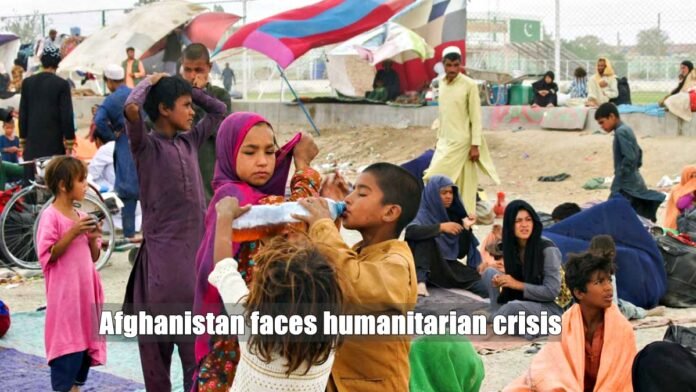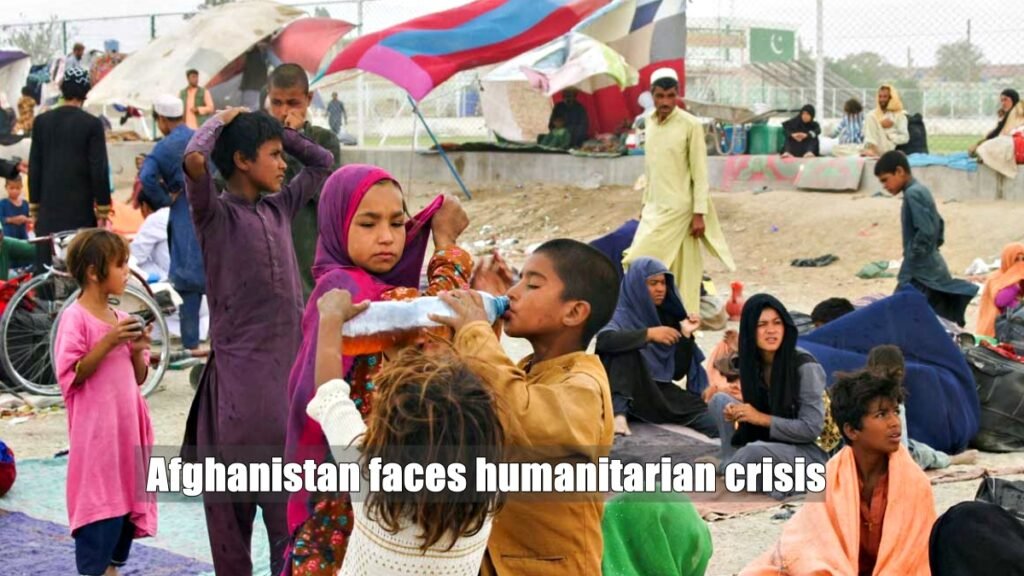
Kabul: Afghanistan is facing a dire humanitarian crisis, as the Taliban takeover of the country has cut off vital aid and food supplies from the international community. Millions of people are struggling to survive, especially women and children, who are the most vulnerable to the harsh conditions and restrictions imposed by the militant group.
Women and children bear the brunt of the crisis
Since the Taliban seized power in Afghanistan in August 2021, they have imposed a strict version of Islamic law, which curtails the rights and freedoms of women and girls. Women are banned from working, studying, or leaving their homes without a male guardian. Those who do not comply face harsh punishments, such as flogging, stoning, or execution.
The situation is particularly difficult for widows, single mothers, and female-headed households, who have no source of income or support. They have to rely on the charity of their relatives or neighbors, or resort to begging or selling their belongings, to feed their children. Many women and children are also displaced, living in camps or makeshift shelters, where they face the risk of disease, violence, and exploitation.
According to the United Nations Children’s Fund (UNICEF), more than 3 million children in Afghanistan are suffering from acute malnutrition, which can have irreversible consequences for their physical and mental development. UNICEF also warns that more than 1 million children under the age of five are at risk of dying from hunger unless urgent action is taken.
World Food Organization unable to meet the demand
The World Food Organization (WFO), the leading agency for providing food assistance in Afghanistan, has also raised its hands, saying that it cannot cope with the overwhelming demand. The WFO says that it can only reach 30 lakh people, out of the 120 lakh people who are facing severe food insecurity in the country. The WFO blames the lack of funding, access, and security for its inability to deliver food to those who need it the most.
The WFO says that it needs $200 million to continue its operations in Afghanistan until March 2024, but it has only received $35 million so far. It also says that it faces challenges in accessing remote and conflict-affected areas, where the Taliban and other armed groups pose a threat to its staff and vehicles. The WFO also says that it has to abide by the Taliban’s rules and regulations, which may limit its ability to reach certain groups or regions.
Aid stopped after Taliban takeover
The humanitarian crisis in Afghanistan has been exacerbated by the sudden withdrawal of foreign aid and support after the Taliban took over the country. Before 2021, Afghanistan was heavily dependent on foreign funding, which accounted for three-fourths of its total expenditure. However, after the Taliban’s victory, many countries and organizations suspended or reduced their aid, citing concerns over the Taliban’s human rights record, legitimacy, and accountability.
One of the reasons behind the aid cut-off is the Ukraine-Russia war and the Israel-Hamas conflict, which erupted in late 2021 and early 2023, respectively. These wars have strained the resources and attention of the major donors, such as the United States, the European Union, and the United Nations, who have shifted their focus and funds to these regions. These wars have also worsened the global economic situation, making it harder for donors to spare money for Afghanistan.

The aid cut-off has had a devastating impact on the Afghan economy, which has collapsed, causing inflation, unemployment, and poverty. The Afghan currency, the Afghani, has lost more than half of its value, making it difficult for people to afford basic goods and services. The banking system has also been paralyzed, as the Taliban have not been able to access the foreign reserves held by the Afghan central bank, which are frozen by the international community. The health and education sectors have also been severely affected, as many hospitals, clinics, schools, and universities have closed down or reduced their operations, due to the lack of funds, staff, and supplies.



















































